Common Questions About The Viva: Dress Code
- Post author By Nathan
- Post date October 16, 2014
- 1 Comment on Common Questions About The Viva: Dress Code

Is there a dress code for the viva?
Whenever I deliver a workshop on viva preparation, I ask “What do you want to know about the viva?” 100% of the time I get asked about the lengths of vivas, but as I answered that question last week , I thought that I would ask the question I get asked at 99% of workshops: is there a dress code for the viva?
In a few institutions, there is a standard of academic attire that is required (I believe Oxford and Cambridge often asks for candidates to wear academic black dress robes); be sure to check if there are any requirements at your institution. Guidelines might be given, but more often it is the candidate’s choice to decide what they want to wear. I know people who have worn business casual to their viva, and I know people who have worn a t-shirt and ripped jeans. I also know people who have stressed over what is “the best” or “the right” thing to wear.
So what is the best thing to wear to the viva?
The answer is really simple: wear something that makes you feel like the best possible version of yourself . I am not alone in feeling like a million dollars when I put a suit on (OK, OK, I feel like James Bond…). Dressing formally does good things for people, straightens your shoulders, raises your posture, puts a little spring in your step.
For other people, dressing casually will bring out the best in them: it helps them to relax. If there is any chance that you might be stood, even for a short time (perhaps giving an opening presentation or explaining something at a board), then make sure that the shoes you are wearing are comfortable. Practical wins out for me every time.
Dress for confidence. The viva does not have to be a scary event, but understandably people can feel a little stress. The clothes you wear can help build you up, so choose things that make you feel great. Also check out this great TED Talk by Amy Cuddy on confidence – and practice your power pose !
This is the first in an ongoing series of posts about common questions that PhD candidates have about the viva; there will most likely be one of these posts at least once a fortnight. To get things going and answer the big things first, in the first week of November I will be publishing a post every day answering common questions about the viva. From the workshops that I have done I have a huge list of questions that people regularly ask – I could please myself and pick five of those…or I could answer some of your questions.
So, what do YOU want to know about the viva?
Thanks for reading! Either tweet questions at me, leave them in the comments or drop me an email !
Nathan ( @DrRyder and @VivaSurvivors )
Share this:
- Tags common questions about the viva , viva , viva dress code , viva prep
One reply on “Common Questions About The Viva: Dress Code”
[…] Is there a dress code in the viva? […]
Comments are closed.
Our Courses
- Undergraduate Courses
- Postgraduate Courses
- Online Distance Learning
- Degree Apprenticeships
- CPD Short Courses
- Architecture and Construction
- Business and Law
- Creative Industries
- Digital and Cyber
- Health and Social Care
- Teaching and Education
- Courses A-Z
- Order a Prospectus
- How to apply
- Ask about a course
- Accounting, Finance and Economics
- Architecture
- Business and Management
- Computer Science
- Film, Media and Screen
- Pharmacy, Pharmaceutical Science and Pharmacology
- Public Health
- Social Work and Social Care
- Sport and Physical Activity
- Civil Engineering and Built Environment
- Cyber Security
- Health Sciences
/prod01/wlvacuk/media/departments/digital-content-and-communications/images-2024/240328-Varsity-Line-Up-Resized.jpg)
Varsity Sport Festival: Fostering camaraderie and competition
University Life
- Living in Wolverhampton
- Living in Walsall
- Living in Telford
- Make a Course Enquiry
- Opening Times
- Student Memberships
- Bus Stop Locations
- Humans of WLV
- Disability Support
- Mature Students Support
- Part-time work
- Student Safety
- How do I apply?
- City Campus
- Walsall Campus
- Telford Campus
- Springfield Campus
- Our Facilities
- Virtual Tour
- News and Events
- Find the right course for you
- Making your application
- After you've applied
- Scholarships
- Costs and Funding
- Repayment Options
- Contact the Gateway
/prod01/wlvacuk/media/departments/digital-content-and-communications/images-18-19/220325-Engineers_teach_thumbail.jpg)
Looking for Bright Sparks: Engineers to teach Physics in new project
/prod01/wlvacuk/media/departments/digital-content-and-communications/images-18-19/240509-Find-the-Captain-Pencil-Drawing-Resized.jpg)
Find the Captain research project gets boost with painting commission
International
- Entry Requirements
- English Entry Requirements
- Apply Direct
- International Fees
- Prospective Students
- New Students
- Current Students
- Who to Contact
- Pre-Arrival Form
- Accommodation
/prod01/wlvacuk/media/departments/digital-content-and-communications/images-2024/240320-Uzbekistan-Resized.jpg)
New partnership agreement extends reach to Uzbekistan
Our Schools
- School of Creative Industries
- School of Social Science and Humanities
- University of Wolverhampton Business School
- University of Wolverhampton Law School
- School of Allied Health and Midwifery
- School of Education
- School of Nursing
- School of Psychology
- School of Health and Society
- School of Sport
- School of Architecture & Built Environment
- School of Engineering, Computing and Mathematical Sciences
- School of Life Sciences
- School of Pharmacy
/prod01/wlvacuk/media/departments/digital-content-and-communications/images-2024/240229-The-Link-Resized.jpg)
West Midlands Mayor cuts ribbon on new employment and skills hub in Walsall
Work With Us
- National Brownfield Institute
- University of Wolverhampton Science Park
- e-Innovation Centre
- Business and Technology Centre
- Conference Booking
- Dining & Refreshments
- Apprenticeship Courses
- Make an Enquiry
- Adopt green processes (EnTRESS)
- Knowledge Transfer Partnerships
- University Procurement
- University Jobs
- Executive Education Programmes and Courses
- Accessing our graduate talent pool
- General Higher Education sessions
- Partnerships
- Aspire to HE
- Supplying the University
- Our History
- Governance
- Academic Calendar
- Equality & Diversity
- Contacts & Maps
- Corporate Information
- Security Services
- Safeguarding
- Applicant Day
- Campus Tours
- Latest News
- Media Relations
- Follow Our Socials
- Teaching and Research
- Human Resources
- Training & Development Opportunities
- eLearning Portal
- Digital Print Services
- Staff Wellbeing Hub
- Comms Toolkit
- Careers Enterprise and The Workplace
- Student Support
- Academic calendar
- Course Guides
- Student Voice
- Stay in touch – Update your details
- Benefits & Services
- Transcripts & Certificates
- Volunteer Opportunities
- Make a donation
- Search Library Resources
- Using the library
- Subject Resources
- Skills for learning
- Digital Campus
Director of the Doctoral College’s Blog
Thoughts and insight from Dr Benjamin Halligan
What Not To Wear: Viva Voce Preparations and Practicalities
17/10/2018 - 3.34.
Dr Benjamin Halligan
There is one question that is almost always asked when I talk to doctoral researchers preparing for their Viva Voces. It used to surprise me, and it seemed a bit irrelevant in the context of talking about strategies for defending your work, limited critiquing of your own methodological approaches (etc)… but it’s in fact a legitimate concern. That question is: what do I wear? This short blog post is a quick collection of nonprescriptive thoughts around this. But I’ll add to this too, in order to think about some more general practicalities around the big day.
Firstly: the outfit. Comfort is the key – but at the same time, a bit of smartness may be important: after all, the External Examiner may have travelled some way for this, and will have spent some time working on your thesis. So I wouldn’t recommend dressing in a way that could seem not to acknowledge the importance of this. If you’re comfortable in a suit, go with the suit. If you prefer something looser, go with that. You’re not being assessed on your appearance.
Secondly: the time. If you’re preparing for the Viva and you’re a morning person --- ask for it to be run in the morning. But think about travel too; don’t put yourself through rush hour if you can avoid it. Or request an afternoon if that’s better, but be mindful that the event may take a number of hours, and so can’t reasonably be scheduled to start too late in the afternoon. This arrangement can be complicated, as often it’s a matter of finding a time for two examiners and the Chair, and possibly your supervisor too. But make sure you have your say! The Viva Voce is the examination of the doctoral researcher: they are the ones in the hot seat, and therefore, I feel, should have some autonomy when it comes to issues of comfort.
Thirdly : the room. Again – have your say. If the room provided isn’t good enough (too noisy, too small, lacking ventilation, PC not up to requirements if needed, effectively a green house or a fridge) then request another. If your University suggests a room that will make it difficult for you to be comfortable, see if you can have that changed before arrangements are finalised. And do go and scope the room beforehand if you can, so you can get a feel for it.

Fifthly : the break. Please do call a break if you want it --- and this can be done through the Chair. I would recommend one every hour and a half, at least, rather than trying to power through the whole lot in one go. In addition, a break can be very useful for clearing the air if you and the examiners have reached an impasse. After 10 or 15 minutes, the examiners may be more inclined to move on to the next point rather than continuing to labour the minutiae.
Sixthly : the friend. I would have someone on standby, for the breaks, for the wait while the examiners decide the outcome, and for the point at which it’s all over. This could be your supervisor who, if also attending the viva, may usefully offer a pep talk during any breaks. I’ve occasionally encountered the friend, when I’ve been chairing a Viva, turn up with a camera – perhaps not a bad thing once it’s all over (and if the outcome is successful). You might need to “walk it off later”, to allow the nerves and tension to wind down.
That’s the checklist! Further in this area, I’ll be turning my attention to the use of mock Viva Voces in my next post.
Add new comment
- International edition
- Australia edition
- Europe edition

How to survive a PhD viva: 17 top tips
Just handed in your PhD thesis? Now it’s time to plan for the next hurdle: a viva. Academics offer their advice on how to best prepare
- Finishing your PhD thesis: tips from those in the know
- The key to a successful PhD thesis? Write in your own voice
- PhD: so what does it really stand for?
H anding in your PhD thesis is a massive achievement – but it’s not the end of the journey for doctoral students. Once you’ve submitted, you’ll need to prepare for the next intellectually-gruelling hurdle: a viva.
This oral examination is a chance for students to discuss their work with experts. Its formal purpose is to ensure that there’s no plagiarism involved, and that the student understands and can explain their thesis. It involves lots of penetrating questions, conceptually complex debates and is infamously terrifying.
How can PhD students best prepare? We asked a number of academics and recent survivors for their tips.
Preparing for the viva
1) Check your institution’s policies and practices
Institutional policies and practices vary. Find out who will attend your viva (eg will a supervisor attend, will there be an independent chair?) and what their roles are. Penny Tinkler and Carolyn Jackson, authors of The Doctoral Examination process: A Handbook for Students, Examiners and Supervisors
2) Re-read your thesis – and keep up-to-date with research
Don’t underestimate the amount of time the examiners will have spent reading and thinking about your thesis – however, you should remember that you are still likely to be the “expert in the room” on this particular topic. Check to see if any relevant recent papers have emerged since submitting the thesis and, if so, read these. Dianne Berry, dean of postgraduate research studies, University of Reading
3) As an examiner, you tend to stick to things you’re an expert in when driving the questioning
Your viva panel will consist of an external expertise in your subject area and an internal which may be in a subject field associated or directly related to yours. The external examiner is the one who mainly calls and fires all the shots and so it’s pretty important to have a knowledge of their published contributions, especially those that are related to your thesis in any way. Dr Bhavik Anil Patel, senior lecturer in physical and analytical chemistry
4) Think about what you will or won’t defend
Consider carefully what you will defend to the hilt in the viva, and what you are prepared to concede. It’s important to defend your claims about the originality of the thesis and its contribution to knowledge. However, no research is perfect, and showing that you have considered what could have been done differently, or even better, is not a bad thing. Penny Tinkler and Carolyn Jackson, authors of The Doctoral Examination process: A Handbook for Students, Examiners and Supervisors
5) Draw up lists of possible questions – especially ones you dread
I collected questions from a bunch of different places ( listed here ) which I then tailored to my PhD. Somebody I worked with also recommended that I put together my 10 nightmare questions. I found this really useful, by writing down and thinking about my dreaded questions, they were no longer so bad – it was almost as if I’d faced the beast.
Generally speaking, I was able to predict the questions that I was asked. There were a couple that were unexpected but they were either conceptual points or based on literature that I just didn’t know. Richard Budd, research assistant, University of Bristol who sat his viva in summer 2014 and has blogged about the experience
6) It’s not like sitting at a laptop where you can edit a sentence as you go along
By the time you finish your PhD you’ll know your thesis inside out. One of the things you won’t be as practised at is talking about it. When I was preparing for my viva, I practised vocalising answers. It’s not a case of needing to learn to answers verbatim – this would only work as a technique if you could guarantee the exact way your examiner will ask a question – but it is about thinking about how you will articulate certain things. A viva isn’t like sitting at a laptop where you can edit a sentence as you go along. Richard Budd, research assistant, University of Bristol who sat his viva in summer 2014 and has blogged about the experience
7) Bring a printed copy that is exactly the same as that of your examiners
Ensure you and your supervisor have a printed copy that is exactly the same as that of your examiners (specifically the same pagination). Mark with tabs the key sections and highlight for reference important quotes and points you might want to refer to. If you have some key diagrams it may help to have these printed larger on A4 sheets that can be used in a discussion.
There is a chance, albeit slim, that an examiner will wish to see some piece of experimental data, software, or other supporting evidence. Have this all neatly archived and accessible. You can do this after submission. Anthony Finkelstein, dean of the UCL faculty of engineering sciences who has blogged about surviving vivas
During the viva
8) Get off to a good start
Give a few detailed answers in the opening 15 minutes, demonstrating knowledge, describing your thinking and working - then the examiners are likely to relax into the viva. If the first few answers are short and non-specific, not demonstrating knowledge, this can begin to raise concerns, and that can set the tone for the whole viva. This is avoidable. Rowena Murray, author of How to Survive Your Viva: Defending a Thesis in an Oral Examination
9) Prepare for the icebreaker
Every viva opens with that dreaded icebreaker that is supposed to break you in gently but often seems to be the thing that gets students into a pickle. It’s so basic, students almost forget about it. Most often this would be to give a five to 10 minute introduction to your work and your key findings. This is such a common question that not preparing for it would be silly. Dr Bhavik Anil Patel, senior lecturer in physical and analytical chemistry
10) Silence doesn’t mean bad news
Don’t assume that you will be given any indication of the outcome at the start of the viva. The examiners may or may not offer comments on the thesis at this stage and candidates should not interpret a lack of comments at this point as a negative sign. In some cases institutional policy prohibits it. Penny Tinkler and Carolyn Jackson, authors of The Doctoral Examination process: A Handbook for Students, Examiners and Supervisors
11) Don’t point out your own weaknesses
Avoid shooting yourself in the foot by highlighting the weaknesses in the thesis by being overly humble (eg “I didn’t think this would be an acceptable piece of research given the way I handled x or y”) or by saying what you “failed to achieve” or “did not manage to carry out in a robust manner” etc. Leave that to the examiners to pick up in their reading, they don’t need help. Dr Mariana Bogdanova, lecturer in management, Queen’s University Belfast
12) Don’t talk like a politician There’s a danger of trying to over-prepare. Don’t learn answers off by heart – it removes the spontaneity and is obvious to examiners. If a student has pre-prepared answers they become a bit like politicians, answering questions they weren’t asked rather than the ones they were. I have come across mixed views on mock vivas. Some people really like them – and they can settle nerves – but other times it can remove spontaneity and steal your thunder. Jerry Wellington, head of research degrees at University of Sheffield and author of Succeeding with Your Doctorate
13) You may need to move from friendly questions to complex debates
Vivas can appear friendly and then suddenly go very conceptually complex. The language used is an alternation between accessible normal language and really specialised arguments. The student needs to be able to move orally between the two. Gina Wisker, professor of higher education and contemporary literature at Brighton University
14) If things get on top of you, use the excuse of having a look at the thesis
Make sure that before the viva you get plenty of sleep, eat properly and de-stress. If things get too much when you’re in there, use the excuse of having to look something up in your thesis. You could also pause and say “Can I write that down for a moment?” Stall for time until you get yourself back together again. Gina Wisker, professor of higher education and contemporary literature at Brighton University
15) Focus on your contribution
One of the most important things that the examiners will be looking for in your thesis, is the “contribution to knowledge”. It is the contribution which makes your work doctoral level. Be sure that you understand exactly what your contribution is, and that you are able to express and explain it clearly and concisely.
Write it down in a paragraph. Discuss it with you supervisor and fellow students. Make sure that you can relate your contribution to other work in your field and that you are able to explain how your work is different. Peter Smith, author of The PhD Viva
16) Expect your viva to last between one and three hours
Students frequently ask how long the viva is likely to be. Obviously they vary. Discipline differences are important. Our research suggests that most natural and applied sciences vivas were completed in one to three hours, whereas arts, humanities and social science vivas were typically less than two hours long. In the natural and applied sciences 43% of vivas lasted two hours or less, compared to 83% in arts, humanities and social sciences. Penny Tinkler and Carolyn Jackson, authors of The Doctoral Examination Process: A Handbook for S tudents, Examiners and Supervisors
17) Enjoy it
The best advice I ever got was “Try to enjoy it”. It seemed ludicrous at the time, but I actually found myself really getting into the discussion as the viva went on. It’s one of the earliest chances you get to talk to someone who not only informed your research (ideally) but is also conversant with your own. It’s a great chance to explore the contours of your research – treat it as such, and it doesn’t seem quite so daunting. Michael James Heron, school of computing science and digital media, Robert Gordon University
- Share any advice you have in the comments below.
Enter the Guardian university awards 2015 and join the higher education network for more comment, analysis and job opportunities, direct to your inbox. Follow us on Twitter @gdnhighered .
- Impact of research
- Universities
- Higher education
Comments (…)
Most viewed.

Community Blog
Keep up-to-date on postgraduate related issues with our quick reads written by students, postdocs, professors and industry leaders.
Finland’s PhD Sword and Hat Tradition

- By Dr Harry Hothi
- August 19, 2020
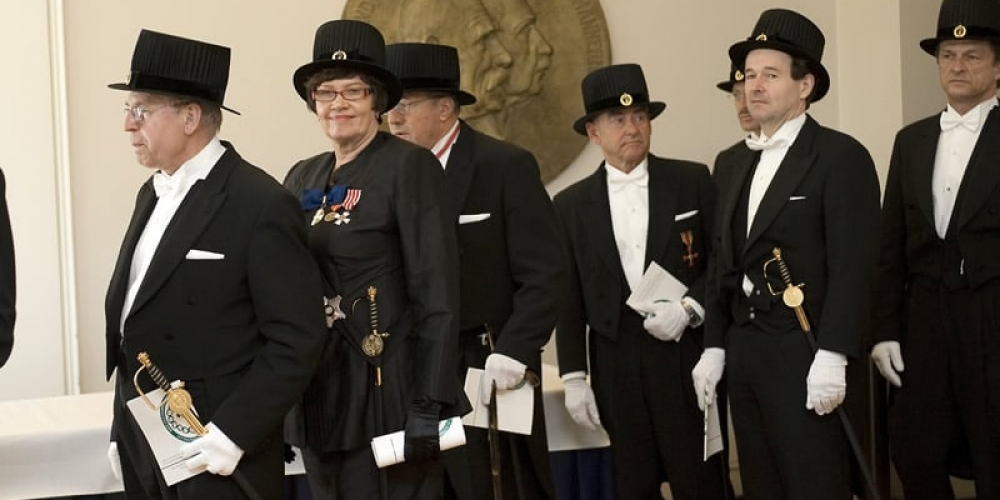
As my PhD graduation day neared in 2012, I was given the opportunity to travel to Toronto and I ended up missing the university ceremony, eventually receiving the doctoral degree certificate in the post a few weeks later. Had I been a PhD student in Finland, I would also have missed the Conferment ceremony and not received my PhD sword and hat. Let me explain…
Finland’s Doctoral Sword and Hat
Once the university is satisfied that the academic requirement for earning a PhD have been met, candidates are formally awarded their doctoral degree certificates which can be collected during graduation ceremonies similar to those in the UK or picked up from the university some-time later.
Whilst on paper you’ll now be a PhD holder, in Finland you’re not considered to be a proper Dr’ until you’ve been through the official ceremony of Conferment which involves receiving a doctoral hat and an actual doctoral sword! In fact, doctoral degree holders that haven’t gone through Conferment are ‘not allowed’ to wear their doctoral hats at any future ceremonies requiring them and must instead carry them in their hands!
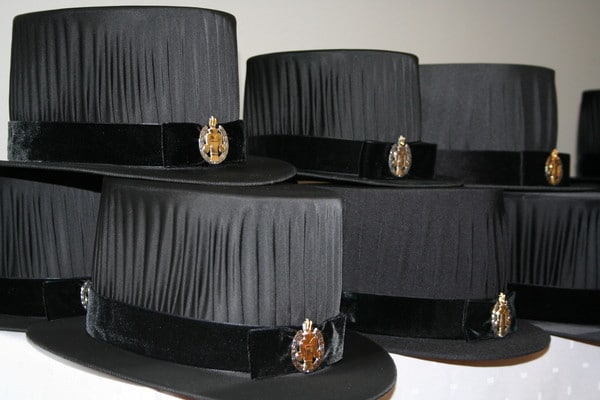
The University of Oulu describes the Doctoral Hat as “a symbol of liberty…scholarship and freedom of research” and the Doctors Sword is “a symbol for the scientist’s fight for what he or she, in rigorous research, has found to be good, right and true”.
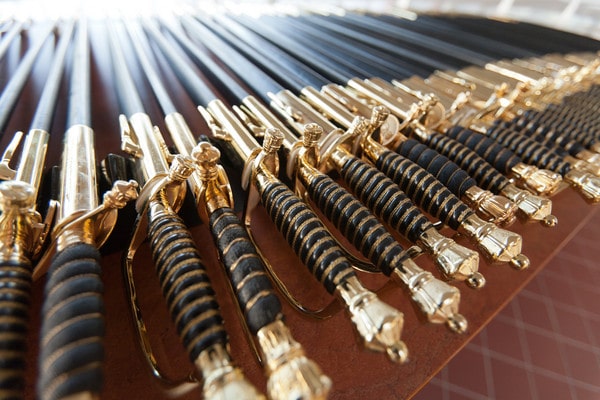
Conferment ceremonies take place every couple of years and as you can imagine are a big deal for new PhD holders/doctors. At the conferment ceremony, new doctors are presented with their PhD hat, PhD sword and certificate of conferment.
The PhD or Doctoral hat, which looks like a top hat, is normally black in colour, but this colour may also vary depending on the specific degree awarded; A Doctor of Medicine, for example, is associated with a green hat, whilst a Doctor of Fine Arts with a dark blue hat. It also usually displays the university emblem attached to a velvet ribbon.
On the evening before conferment day, a traditional sword-whetting’ ceremony occurs. At this, new PhD holders bring the sword that they’ll officially be presented with the next day and they sharpen this sword on a hand-turned grindstone that’s turned by the other people at the ceremony. This is usually followed by a short speech by the new doctor in which they describe the importance of the sword to them and how it symbolises the defence of knowledge and their responsibilities as a new doctoral degree holder. When they are worn in official ceremonies in the future, they are traditionally placed on the left side.
PhD Defence in Finland: The Dress Code
In addition to Finland’s PhD Sword and Hat customs, Finnish university PhD defences (i.e. the viva) are steeped in tradition when it comes to the academic dress code. Most commonly, male doctoral candidates wear a tailcoat and black waistcoat with black socks and shoes, or a dark suit or military uniform. Female candidates usually wear a long-sleeved, high-necked short black dress or two-piece suit. Candidates are not permitted to wear hats or any prominent jewellery.
The Custos and Opponent (I’ll explain what these mean further on), assuming that they themselves hold doctoral degrees, traditionally carry their doctoral hats in their hands when they walk into and out of the auditorium. During the actual examination, they place their hats on the table in front of them.
At the post-examination karonkka (celebratory dinner), most men usually wear a tailcoat but this time with a white waistcoat instead of black, whilst women tend to wear evening dresses. In more modern times however, there has been a trend towards men starting to wear black/dark suits and women short, formal dresses.
As well as the tradition of clothing, swords and hats, the process of submitting and defending a PhD thesis is itself a rite of passage of students. Read on to learn more….
Finding a PhD has never been this easy – search for a PhD by keyword, location or academic area of interest.
The Finnish PhD Defence
First off, in Finland when you have write up your thesis you can do so in two main ways. The first is the conventional way used in the UK and elsewhere of a continuous large document, more than 50,000 words in length. The second (and the most common) is to submit a shorter summary thesis combined with 3 to 4 published papers.
When it’s ready, the thesis is examined internally by a thesis panel made up of faculty within your institution. This process occurs during what is known as a Grand Seminar’, which hopefully concludes with your thesis being approved for review by external examiners. The external examiners will critically assess your research and the contents of your thesis and make suggestions for any edits or revisions if deemed necessary. The primary outcome you’re after here is approval from the external examiners for your thesis to move to the next stage: The Public Defence.
The levels of formality and adherence to past traditions does now vary to some extent across Finnish universities but traditionally, the next step is for the University Faculty to select an Opponent or Opponents and the Custos. The Custos is the name used to describe the person that will be chairing the public defence and the Opponent(s) are the people that will be formally debating with the PhD student about the content of their thesis (i.e. the examiners’).

Once the Opponent(s) and Custos have been appointed, a date for the public defence is set. At the University of Helsinki , for example, public defences usually take place on Wednesdays or Fridays at midday or at 10am on Saturdays; the actual examination however starts at a quarter past the hour, at time referred to as the “academic quarter”.
On the day of the defence, which takes place in a large auditorium and is open to any member of the public to attend, the public examination officially starts after the PhD student enters the auditorium, followed by the Custos and Opponent(s) (the order here is important).
The doctoral candidate will first deliver a “lectio praecursoria” which is a 20-minute presentation that introduces the work of their research and the methodology used. This is followed by short introductory remarks about the research by the Opponent, after which the formal cross-examination begins.
The formal examination can last several hours, with the Opponent systematically working through the content of the thesis and the doctoral candidate defending their work as questions arise. After examination by the Opponent is complete, he or she will (hopefully!) declare to the Faculty that the thesis should be accepted (i.e. that the doctoral degree should be awarded).
After this, the ‘floor’ is opened up to the general public, with anyone from the audience welcome to ask questions, moderated by the Custos. This sessions concludes with the PhD candidate, Opponent and Custos leaving the auditorium in the same order that they came in.
Assuming that they pass the examination, the successful doctoral candidate will traditionally invite their Opponent and Custos to a formal evening dinner known as a karonkka. These dinners are in themselves quite an event, with expectations of ‘fine’ dining, prepared speeches and smart dress.
The traditions involved in Finland for gaining a PhD and the symbolism of new doctors being presented with a Doctoral Hat and Sword is something quite special and one that I hope lasts for a long time to come. Had I done my PhD research in Finland, I wouldn’t have missed my Conferment Ceremony for the world!
Banner image source : https://blogs.helsinki.fi/eltdkpromootio2015/doctoral-conferment-ceremony/instructions/doctoral-hats-and-swords/

You’ll come across many academics with PhD, some using the title of Doctor and others using Professor. This blog post helps you understand the differences.

A concept paper is a short document written by a researcher before starting their research project, explaining what the study is about, why it is needed and the methods that will be used.

The term research instrument refers to any tool that you may use to collect, measure and analyse research data.
Join thousands of other students and stay up to date with the latest PhD programmes, funding opportunities and advice.

Browse PhDs Now

Starting your PhD can feel like a daunting, exciting and special time. They’ll be so much to think about – here are a few tips to help you get started.

Need to write a list of abbreviations for a thesis or dissertation? Read our post to find out where they go, what to include and how to format them.

Amy recently entered her third and final year of her PhD at the University of Strathclyde. Her research has focussed on young people’s understanding of mental health stigma in Scotland.

Dr Pujada obtained her PhD in Molecular Cell Biology at Georgia State University in 2019. She is now a biomedical faculty member, mentor, and science communicator with a particular interest in promoting STEM education.
Join Thousands of Students

Viva examinations: guidance

This guidance explains the viva process, how to prepare, what will happen on the day and what the possible outcomes are.
This information is for postgraduate research students. It covers:
- before your viva
- preparing for your viva
- during your viva
- outcomes of the examination
Before your viva
Entry forms.
You must enter the exam via Portico about four months before you are ready to submit. You may not submit your thesis until you have entered for the examination and your examination may be delayed if you have not done this.
Find out more about examination entry
Your supervisor is responsible for arranging the appointment of your examiners. This should be done at the same time as you complete your examination entry form, four months before you are due to submit your thesis. Examiners are appointed by UCL for their professional services as examiners with expert subject knowledge. A minimum of two examiners, one from outside UCL and (normally) one from UCL are appointed to co-examine all research degree candidates. The examiner nomination form can be found here .
Submit your thesis
Find out more about formatting, binding and submitting your thesis.
Collaborative research projects
If you are contributing to a collaborative research project you must include this information in the introduction to the thesis. You must clearly identify the demarcation between the research you are submitting for examination as an original contribution to knowledge and the work of your collaborators.
Viva arrangements
Your supervisor (or nominee) will liaise with you and your examiners to arrange and confirm a mutually convenient time and place to hold the viva examination. The viva must not be arranged before the examiners are formally appointed by UCL. It may take place at UCL, or remotely. Your examiners should have your thesis at least six working weeks before the viva and you will receive an email once the thesis has been sent to the examiners. At this point, you will be able to record the viva via the ‘Research Student Administration’ section in Portico. A user guide is available with step-by-step instructions for submitting this information. Your viva should then take place within three months of the dispatch of the thesis to your examiners.
Download the viva notification user guide
Reasonable adjustments
If you or one of your examiners have a disability which UCL cannot accommodate, other reasonable arrangements can be made for the viva. You must make a request in writing when you complete the examination entry form to allow time for arrangements to be made.
Preparing for your viva
We recommend that you re-read your thesis. Try to anticipate questions, comments and criticisms, and think how you would respond. Although you may not be able to anticipate actual questions to be asked by the examiners, this approach will encourage you to think actively about your work. You should also refresh your memory of the relevant literature. Do not attempt to re-read every paper in the bibliography of your thesis; instead, re-read carefully some of the more recent key references. If you have left university after submitting your thesis you may be unaware of very recent work. Ask your supervisor a couple of weeks before the viva whether any work of direct relevance to your thesis has been published since you submitted your thesis.
You must not contact your examiners directly at any point leading up to the viva or afterwards. All contact should be done by your supervisor or other relevant departmental staff member.
A good way to prepare for your viva is to practice. Your supervisor should give you a mock viva, or arrange for this to be undertaken by a member of your upgrade panel.
During your viva
A viva is an academic interview at which your examiners will be looking for an understanding of the subject matter of your thesis, an appreciation of its significance to established knowledge in the field, and an awareness of the breadth of the subject area.
Your supervisor will be invited to attend your viva examination, unless you request otherwise; you must indicate this on your examination entry form. Your supervisor does not have the right to participate in the viva examination but may contribute if invited to do so by the examiners.
The examiners will expect you to:
- show a critical analysis of your own work and of that of others
- appreciate the limitations of the methods employed and the results obtained by yourself and others
- understand how the broad conclusions of your thesis support, add to or conflict with previous work
- know the major concepts and recent developments in your subject
There is no formal procedure laid down for the conduct of the viva examination. Some examiners prefer to work through the thesis in the order in which it is written. Other examiners prefer to discuss topics. Very few examiners will perform a page by page criticism. You may be asked to prepare a presentation of your work in a suitable format.
You are not expected to know your thesis by heart, but to refer to the appropriate page when the examiners wish to discuss a specific point. Please ensure that you bring to the viva examination a copy of your thesis paginated in the same way as the copies you have submitted to the Research Degree Examinations Office.
You should not simply answer 'yes' or 'no' to questions nor give a prepared exposition. Try to answer the question as it is put, remembering that you are engaged in an academic conversation.
Be prepared to justify your ideas and conclusions. If the examiners challenge your interpretation but you feel that your case is a good one, muster your arguments and be willing to present your case firmly but courteously. However, if the examiners have identified a genuine weakness, concede the point gracefully. Even if you feel the examiners are unreasonably critical do not become argumentative or allow the discussion to become heated. You can agree to differ and to reconsider the point. All participants in the viva must abide by UCL's Bullying and Harassment Policy . If you make any comments to your examiners which put them under moral pressure, for example alluding to what will happen if they fail you, or if you offer any incentive to your examiners to pass you, they must terminate the examination and report to the Chair of the Research Degrees Committee via Research Degrees in Student and Registry Services.
Outcome of the examination
The following are the three most often received results and the subsequent procedures.
We will email you with reports from your examiners, copied to your supervisor, instructing you to submit the following documents:
- the electronic copy of your thesis
- thesis deposit agreement form (uploaded with the e-thesis)
We will award your degree once you have met the academic conditions, the Library have confirmed receipt of your e-thesis and the Deposit Agreement form, and you have cleared any outstanding fees.
The electronic copy of your thesis and thesis deposit agreement form should be deposited to the Library via UCL's Research Publications Service. Please make sure that you remove, or blank out, all personal identifiers such as signatures, addresses and telephone numbers from the e-thesis. Any photographs that you have taken should not show identifiable individuals without their permission and any you have taken of children should mask their faces. If you have any queries regarding this aspect of the process, please contact the Library directly.
UCL no longer requires a printed copy of your final thesis. If you do wish to deposit a hard copy you can do so by sending it directly to the Cataloguing & Metadata department of Library Services by post, or in person at the Main Library help desk. You will find more information about the process on the existing webpage for e-thesis submission.
Find out more about depositing an electronic and printed copy of your thesis
Once you have submitted these, we will send an email containing the confirmation of award and your reports to your email address you have recorded on Portico. The degree certificate will follow approximately four months after the official award date.
In the case of an examination for specialist doctorates (including the EngD, EdD and MPhilStud), the award of the degree is also conditional upon students passing all taught elements of their programme of study. The modules should be entered on to Portico by the Department and confirmation these elements have been completed will be passed from the Examinations Department to Research Degrees.
Minor corrections
This is by far the most common result received from the examiners.
We will email you with reports from your examiners, copied to your supervisor and Faculty Graduate Tutor. The deadline to submit your corrections officially starts from the date of this email, which will also indicate the name of the person designated to check your corrections. This deadline is for you to submit the corrections to the designated checker, and not to submit the final copy of your thesis.
Your examiners may have returned an annotated copy of your thesis to you and therefore you may already be aware of the work required. The designated checker should inform you of the format he/she expects to receive the corrections, although normally this will be in electronic format.
The designated checker should confirm the outcome of the examination within one month of receipt of the minor corrections to the thesis. This is usually done by sending an email directly to Research Degrees.
Once this has been received we will follow the procedure for a pass result.
Resubmission in a revised form
We will email you with reports from your examiners, copied to your supervisor, Departmental Graduate Tutor and Faculty Graduate Tutor. The 12 or 18 month deadline officially starts from the date of this email.
Unlike the outcome for minor corrections, where one person checks the amendments, the resubmission requires you to re-enter for the examination and submit two copies of your thesis for forwarding to the examiners.
Your examiners may have returned an annotated copy of your thesis to you and therefore you may already be aware of the work required.
Once you have completed the corrections, you will need to:
- submit a new exam entry form to Research Degrees at least two weeks prior to the expected submission of the thesis
- submit an electronic copy of your thesis to Research Degrees via the UCL Dropbox.
Find out more about formatting, binding and submitting your thesis. Your supervisor will be emailed to confirm that the examiners are still willing to act and provide their current contact details. This is to avoid the thesis from being sent out incorrectly. We will then send an email to your supervisor and examiners reconfirming their appointment and send the thesis to them via the UCL Dropbox.
If the examiners have requested a second viva, your supervisor will arrange this. In these circumstances, the procedure will follow that of a typical research degree examination.
If a further viva is not required, your examiners are only required to submit a joint report. They cannot award another 18 month resubmission, but can allow minor corrections.
Once the reports are received we will follow the procedure for either the pass or minor corrections result.
Other results
If the result falls outside the above descriptions, we will email you detailing the procedure you will need to follow.
Related content
- Research degrees: examination entry
- Format, bind and submit your thesis
- Doctoral school

Browser does not support script.
- Student intranet
- Staff intranet
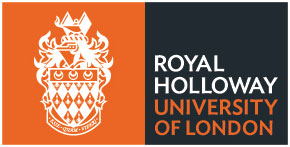
As part of the examination process, you will be required to sit an oral examination (viva / viva voce) to defend your thesis.
Why is there a viva?
The viva is held to allow your examiners to explore areas of your work that they have queries about and to allow you to respond to any shortcomings identified within the thesis. The viva is used to:
- check that you are well acquainted with your subject matter and have a broader understanding of the subject area
- confirm that the thesis is your own work
- clarify any points that the examiners found unclear
- explore whether you have applied the appropriate research methods and explore why you conducted the research the way in which you did
- confirm that you understand the background for the work you have done and how it links to the work of others.
Vivas - online or face-to-face?
Candidates are now offered the option to have their viva held via video conference or face-to-face. For further details and to help you make your choice, please refer to:
- Conducting vivas online - guide for candidates
Who organises the viva?
Your thesis will be dispatched to both examiners and Independent Chair once they have both accepted the invitation to examine. The Doctoral School will let you and your supervisor know when the thesis has been dispatched. At this point, your supervisor will be asked to organise the viva. Please note:
- it is the responsibility of your supervisor to organise the date and venue for the viva
- it is expected that the viva should take place within three months of the theses being dispatched to the examiners
- if you choose for your viva to be held face to gace, the viva should be held at Royal Holloway main campus or Bedford Square or Senate House in central London
- examiners are required to submit individual preliminary reports on the thesis to the Doctoral School prior to the viva.
- The Doctoral School should be advised when and where / how the viva will take place.
At the viva
What can i bring to the viva.
- A copy of your thesis (either a hard or an electronic copy)
- Any supplementary materials that support the thesis
- Writing materials (either a notebook and pen or a laptop)
- Light snacks and drinks
- The items you've carried with you to attend the viva (such as a coat, a handbag/rucksuck, phone) to be left on the side of the room
What format can I expect for the viva?
- The viva will follow an interview format of questions and answers. The questions can address any aspect of the submission.
- For suggestions of common questions, you may find this article helpful.
- There is no standard duration for the viva.
Can I take notes during the viva?
- Yes - you are allowed to take notes during the viva and point to places in the thesis where you have stated the answers to the questions. This helps the examiners remember what they have read and shows that you know what’s in your own thesis.
- Taking notes during the viva can also assist with any post viva amendments pointed out by your examiners.
Will anyone be in the viva besides my examiners and the Independent Chair?
- If you choose for your viva to be held face-to-face, your supervisor is invited to attend the viva examination as an observer but will not participate in the examination unless invited to do so by the examiners.
- If you choose for your viva to be held online, your supervisor will organise a date for the viva. The independent chair will set up the MS Teams meeting, be present during the viva to record the viva and to co-ordinate participants in case of any technical difficulties.
- Observing the viva enables the supervisor to provide better support to you should you be required to complete amendments after the viva.
- If you would prefer your supervisor not to attend the viva, you have the option to request this on your exam entry form.
Where can I find further guidance to help me prepare for the viva?
- You can ask your department for a mock viva which will help you formulate answers to the questions you may be asked and to gain an experience of the viva format.
- 'The Good Viva Video’, available through the Researcher Development Programme Moodle site will help you prepare for the viva, know what to expect on the day and how to understand the outcome.
- There is a ‘Preparing for your viva’ class through the Researcher Development Programme
- You can find more resources on how to get ready for your viva here .
What about exam access arrangements?
If you have indicated on your exam entry form that you are registered with the Disability and Neurodiversity Services (D&N), the Doctoral School will contact the D&N team to ask for information about what reasonable adjustments can be made to the exam to better suit your needs. The examiners will be made aware of the DNS suggestions prior to the viva, as appropriate. Please contact the D&N for further information on how the viva may be adjusted.
Extenuating circumstances
If you feel that your academic performance on the date of the oral examination may be substantially affected by unexpected medical or other personal circumstances, you should inform the examiners of your situation no later than the start of the oral examination so that they can make a decision on whether or not to proceed. The examiners may require you to submit evidence of your condition to the Doctoral School within seven days.
Will the viva be recorded?
Yes - the Research Degree regulations stipulate that all vivas will be recorded for use in the event that you appeal the outcome of the viva. This is the only reason the recording will be accessed. Recordings will be kept by the Doctoral School until you have been awarded and then destroyed. Requests for access to the recording for post viva corrections will not be permitted and students should not record, download or screen capture the viva.
What happens after the viva?
The examiners are asked to send their decision and joint report form on the examination to the Doctoral School within two weeks of the viva. Once this paperwork has been received, the Doctoral School will inform you of the outcome.
In some cases, the examiners may be in a position to indicate to you the outcome at the end of the viva (but this should not be an expectation and the official outcome is the one that will be communicated to you by the Doctoral School). If they provide you with a list of amendments to be made or an annotated copy of your thesis, please begin work on the amendments straightaway. The Doctoral School will confirm your deadline for submitting the amendments to the examiner(s) once the report forms have been received.
Quick links
Five top tips to pass your PhD viva
Research assistant Kirsty Devaney , who successfully completed her doctorate , provides five invaluable pieces of advice on passing the PhD viva.
First thing's first...what is the PhD viva?
Officially called the viva voce , meaning ‘living voice’ in Latin, the viva is an oral examination that sees a PhD student defend their thesis and showcase their knowledge to a panel of academic experts.
The viva takes place after you have completed your thesis and sees these experts ask you various questions to ensure you understand your work and have become an expert in your field.
Now, over to Kirsty…
1). Make your own learning space
"It's important on the lead up to the viva voce to have a space that's designated for your preparations. This could be at your university, in a coffee shop or at home.
"For instance, I took over my dining room table for a good two months. I had all of my resources there - my books, my thesis and lots of post-it notes."
2). Take some time away from your thesis
"I had a three-month wait in between submitting my thesis and sitting my viva, but I knew I couldn’t spend that time prepping as it would be far too intense. I took a full month off from revising and returned with a clear idea of what I needed to do."

3). Make a plan of action
"A month before my viva, I made a list of things I wanted to achieve before the day.
"One was to read through my thesis in full three times. I also committed to tabbing all of the important chapters, diagrams and data in my thesis, so I could refer to them quickly if needed.
"I then compiled a series of questions which I thought might come up in the viva and put them all into a pot. Once I’d got enough questions, I’d ask my husband to pull out one of the pieces of paper at random and ask me the question.
"Some days I would also catch up on any recent literature I may have missed that could be relevant.
"All of this proved incredibly useful for when my viva arrived."
4). Know your examiners
"When you’re close to completing your doctorate, you might have a conversation with your supervisors about the people in the field who might be external examiners.
"Once you know who they are going to be, it’s really important to get to know their research, what their research interests are and what methodologies they use."
5). Become the expert
"BCU does a mock viva, which I found incredibly helpful as it meant I could work on any difficulties I faced.
"One issue that arose from my mock was that I had to become a lot more confident and assertive about my research and my findings.
"When you walk into the room to do your viva, you are making the leap from being a student to having the certainty of an expert."
How scary was the PhD viva?
Kirsty, who also runs the successful Young Composers Project , says it’s important not to be too fearful of the examiners.
"They are there to challenge you, but they’re not trying to be mean for the sake of it,” she explains. “They want to make sure you know your stuff and haven’t just plagiarised the material.
"However, it’s important to breathe and take your time – they’re not expecting rapid-fire responses."
Kirsty credits the support of the School of Education and Social Work for getting her through her PhD.
"They really got it right,” she says. "They have been incredibly supportive. I never felt alone."

Thinking about a PhD?
Take a look at our PhD courses and become an expert in your field.
View courses

Mental health support for research students
Things i wished i'd known when starting my phd.
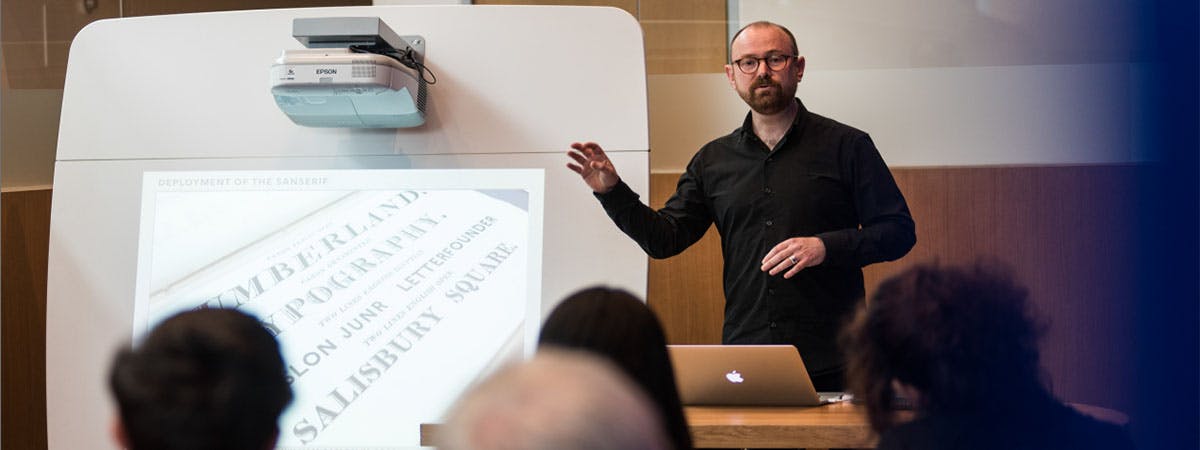
Examining the Sans Serif typeface
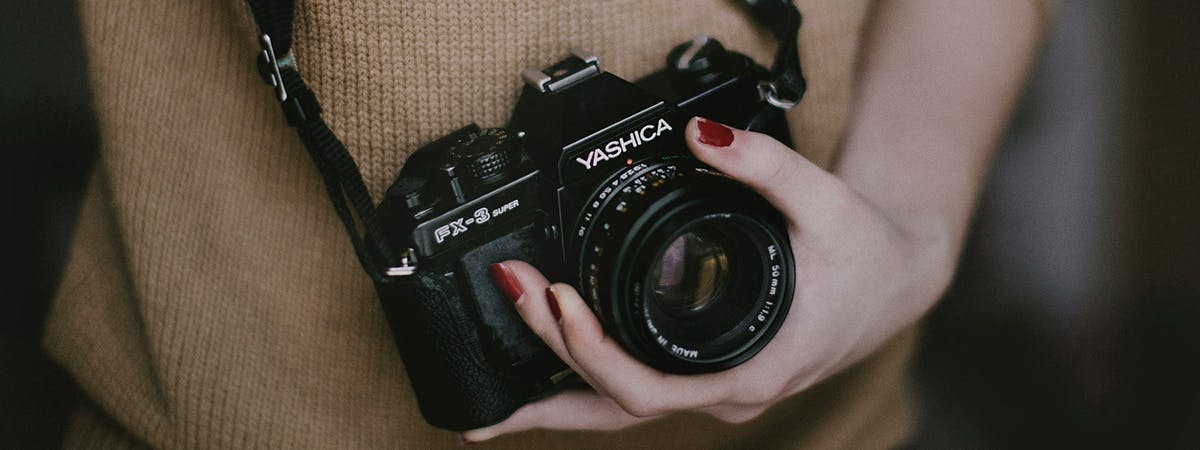
Making the leap from full-time work to full-time PhD study

Should I get a job or do a PhD?
Recent searches
We won't record your recent searches as you have opted out of functional cookies. You can change this on our Manage Privacy page should you wish to.
Popular searches
- Scholarships
- Postgraduate Guide
- Student Finance
- Student Support
Suggested searches
- Life in Birmingham
- Look at Me Now
- Graduate Scholarship

Study at Cambridge
About the university, research at cambridge.
- Undergraduate courses
- Events and open days
- Fees and finance
- Postgraduate courses
- How to apply
- Postgraduate events
- Fees and funding
- International students
- Continuing education
- Executive and professional education
- Courses in education
- How the University and Colleges work
- Term dates and calendars
- Visiting the University
- Annual reports
- Equality and diversity
- A global university
- Public engagement
- Give to Cambridge
- For Cambridge students
- For our researchers
- Business and enterprise
- Colleges & departments
- Email & phone search
- Museums & collections
- Undergraduate and Postgraduate Taught
- Postgraduate examinations
- Writing, submitting and examination
- PhD, EdD, MSc, MLitt
- Cambridge students
- New students overview
- Pre-arrival courses
- Student registration overview
- Information for New Students
- Information for Continuing Students
- Frequently Asked Questions overview
- Who needs to register
- When to register
- Received registration in error/not received registration email
- Problems creating an account
- Problems logging in
- Problems with screen display
- Personal details changed/incorrectly displayed
- Course details changed/incorrectly displayed
- Accessing email and other services
- Miscellaneous questions
- Contact Form
- First few weeks
- Manage your student information overview
- Student record overview
- Camsis overview
- Extended Self-Service (ESS)
- Logging into CamSIS
- What CamSIS can do for you
- Personal information overview
- Changing your name
- Changing Colleges
- Residing outside the University's precincts
- Applying for person(s) to join you in Cambridge
- Postgraduate students overview
- Code of Practice for Master's students
- Code of Practice for Research Students
- Postgraduate student information
- Requirements for research degrees
- Terms of study
- Your progress
- Rules and legal compliance overview
- Freedom of speech
- Public gatherings
- Disclosure and barring service overview
- Cambridge life overview
- Student unions
- Extra-curricular activities overview
- Registering societies
- Military, air, and sea training
- Food and accommodation
- Transport overview
- Bicycles and boats
- Your course overview
- Undergraduate study
- Postgraduate study overview
- Changes to your student status (postgraduates only) overview
- Applying for a change in your student status (postgraduates only)
- Changing your mode of study
- Withdrawing from the University
- Allowance/exemption of research terms
- Withdrawal from Study
- Reinstatement
- Changing your course registration
- Changing your department/faculty
- Changing your supervisor
- Exemption from the University composition fee
- Confirmation of Study: Academic Verification Letters
- Extending your submission date
- Medical intermission (postgraduates)
- Non-medical intermission (postgraduates)
- Returning from medical intermission
- Working away
- Working while you study
- Postgraduate by Research Exam Information
- Research passports
- Engagement and feedback
- Student elections
- Graduation and what next? overview
- Degree Ceremonies overview
- The ceremony
- Academical dress
- Photography
- Degree ceremony dates
- Eligibility
- The Cambridge MA overview
- Degrees Under Statute B II 2
- Degree certificates and transcripts overview
- Academic Transcripts
- Degree Certificates
- After Graduation
- Verification of Cambridge degrees
- After your examination
- Exams overview
- Undergraduate and Postgraduate Taught overview
- All students timetable
- Undergraduate exam information overview
- Postgraduate examinations overview
- Examination access arrangements overview
- Research programmes
- Taught programmes
- Writing, submitting and examination overview
- PhD, EdD, MSc, MLitt overview
- Research Best Practice
- Preparing to submit your thesis
- Submitting your thesis
- Word limits
- The oral examination (viva)
- After the viva (oral examination)
- After the examination overview
- Degree approval and conferment overview
- Final thesis submission
- Examination allowances for certain Postgraduate degrees (except PhD, MSc, MLitt and MPhil by thesis degrees)
- Requesting a review of the results of an examination (postgraduate qualifications)
- Higher degrees overview
- Higher doctorates
- Bachelor of divinity
- PhD under Special Regulations
- Faith-provision in University exams
- Publication of Results
- Exam Support
- Postgraduate by Research
- EAMC overview
- Annual Reports of the EAMC
- Dates of meetings
- Frequently asked questions
- Guidance notes and application forms
- Resources overview
- Build your skills
- Research students
- Fees and financial assistance overview
- Financial assistance overview
- General eligibility principles and guidance
- Cambridge Bursary Scheme funding overview
- What you could get
- Scottish students
- EU students
- Clinical medics and vets
- Independent students
- Extra scholarships and awards
- Undergraduate Financial Assistance Fund
- Postgraduate Financial Assistance Fund
- Realise Financial Assistance Fund
- The Crane Fund
- Loan Fund I
- External Support
- Support from your Funding Sponsor
- Guidance for Academic Supervisors and College Tutors
- Fees overview
- Funding overview
- Mosley, Worts, and Frere Travel Funds
- Support for UKRI Studentship Holders overview
- Student loans overview
- US loans overview
- Application procedure
- Entrance and Exit Counselling
- Cost of attendance
- What type of loan and how much you can borrow
- Interest rates for federal student loans
- Proof of funding for visa purposes
- Disbursement
- Satisfactory academic progress policy
- In-School Deferment Forms
- Leave of absence
- Withdrawing and return to Title IV policy
- Rights and Responsibilities as a Borrower
- Managing Repayment
- Consumer information
- Submitting a thesis — information for PhD students
- Private loans
- Veteran affairs benefits
- Frequently Asked Questions
- Student support
- Complaints and appeals
The Oral Examination (viva) - Doctoral degrees, MSc and MLitt
If you have not been advised of the date for your viva within six weeks of submitting your thesis, you should contact your Degree Committee.
Location of the viva
The viva will normally take place in-person in Cambridge, but you may choose to be examined remotely by video conference. You should inform your Degree Committee of your preference when you notify them of your intention to submit/apply for appointment of examiners. Please also make your supervisor aware of your preference as it may affect the choice of available examiners.
Arrangements where you and one examiner are co-located in Cambridge, with the second examiner participating by video conference, where both examiners are co-located and you participate by video conference, or where you and the examiners are all in separate locations, are permissible provided all parties agree.
In-person oral examination: In-person examinations may be delayed depending on the availability of the examiners as travel time will need to be factored in. Students who are overseas and returning to Cambridge for their viva should contact the International Student Office for visa advice if their student visa has expired or will be expiring soon.
Video conference oral examination: A guide to conducting vivas by video conference can be found here .
The choice of in-person or video conference viva does not constitute procedural irregularity grounds for complaint should you fail the examination.
Adjustments to the oral examination on the grounds of disability
If you wish to notify examiners of a disability or request adjustments on account of a disability for your viva (either your first year assessment or final examination), you can do this via your Degree Committee by completing and submitting the voluntary disclosure form . It is recommended you do this at least four weeks before your expected date of examination to allow time for appropriate recommendations and adjustments to be made.
Once you have submitted the form, your Degree Committee will contact the University’s Accessibility and Disability Resource Centre (ADRC) who will advise the Degree Committee on the appropriate course of action. You may be contacted by the ADRC if additional information is required or to provide you with an offer of additional support.
The information provided on the voluntary disclosure form will be kept confidential and will not be used for any other purpose.
If you already have a Student Support Document (SSD) that includes recommendations for adjustments to the viva , and you have given permission for the SSD to be shared with the Degree Committee, you do not have to complete the voluntary disclosure form but may do so if you wish.
What happens at the viva?
- The viva will normally take place in Cambridge, although some may take place via video-conference (please see above)
- It is carried out between yourself and the two examiners and is conducted in English
- It may include an Independent Chairperson if the Degree Committee requires this
- There is no set duration, but a viva will normally last between 90 minutes and three hours
- You may be required to do a presentation - please check with your Department whether this is the case. If you are required to give a presentation, you should be informed at least two weeks in advance of the viva
- The viva cannot be recorded
- Your supervisor cannot attend the viva
Your Department should advise on any department-specific conventions or procedures.
Purpose of the viva
The viva gives the opportunity for:
- you to defend your thesis and clarify any matters raised by your examiners
- the examiners to probe your knowledge in the field
- the examiners to assure themselves that the work presented is your own and to clarify matters of any collaboration
- the examiners to come to a definite conclusion about the outcome of the examination
Possible outcomes of the viva
The possible outcomes are:
- Conditional approval - pass without correction (but for doctoral degrees subject to submission of hardbound and electronic copies of the thesis ); or pass, subject to minor or major corrections
- Revision and resubmission of the work for a fresh examination
- Revision and resubmission of the work for a fresh examination or acceptance of the MSc/MLitt without further examination (but possibly subject to corrections)
- Not to be allowed to revise the thesis, but offered the MSc/MLitt without further revision or examination (but possibly subject to corrections)
- Outright failure
Notification of the result of the viva
Your examiners are asked not to give any direct indication of the likely outcome of the examination as the official result can be confirmed only by Student Registry on behalf of the Postgraduate Committee. Following your Degree Committee's meeting they will forward their decision to the Student Registry who will email your reports to you, copying in your Supervisor.
Process following the viva
Information about the process following your viva can be found here.
© 2024 University of Cambridge
- Contact the University
- Accessibility
- Freedom of information
- Privacy policy and cookies
- Statement on Modern Slavery
- Terms and conditions
- University A-Z
- Undergraduate
- Postgraduate
- Research news
- About research at Cambridge
- Spotlight on...

- Professional Work Based Learning
- Contingency classification and progression regulations
- Coming soon
- Exceptional classification and progression regulations
- Exceptional regulations: Covid-19
- Academic regulations
- Personal tutoring, student support and development
- Assessment, awards and degree classification
- Programme and module design and approval
- Concerns, complaints and appeals
- Registration and attendance
- Research degree policies and guidance
- Progression
- Supervision
- Research programme regulations
- Regulations for programmes which are not currently running
- Student engagement and representation
- Studies away from the University
- Recent changes
Viva voce examinations
This page sets out the procedures surrounding viva voce examinations, including advice on timings, location, format and attendance. It content is relevant to staff and students across all of the UK, China and Malaysia campuses.
Search the manual
Please be aware that during academic year 2019/20, the University introduced exceptional regulations in response to the Covid-19 pandemic. These were campus specific and meant to be read in conjunction with all pre-existing content.
From the beginning of academic year 2021/22, the active application of the exceptional regulations affecting this page has now ceased.
Any outcomes from the application of these regulations during academic years 2019/20 and 2020/21 will, however, continue to be honoured and used in all decisions regarding those affected.
Further details can be found in the "Exceptional regulations applied in response to Covid-19" section below.
1. Timing of viva voce examination
2. location for viva voce examination.
The viva voce examination (if required, as will be the case for doctoral degrees) will normally take place at the University.
However, the Head of School may give permission in appropriate circumstances for the viva voce examination to be held in another location or through online means provided agreement of the Examiners and the student is obtained and the proposed location/format is one that is deemed by them all to be suitable for the purpose.
These decisions will be indicated on the Nomination of Examiners form, which will alert Registry and Academic Affairs to the proposed arrangements.
If circumstances demand it, a viva voce examination may be organised in another form (e.g. by a video conference/other online platform).
Before agreeing such an arrangement the School must check that appropriate facilities for an online viva voce are available to all participants, and shall ensure they have written confirmation that the student and the Examiners have agreed to the proposal. Hybrid viva conditions with only the candidate located remotely are not permitted. If a hybrid viva is unavoidable, if and where possible, the candidate should be co-located with either the internal examiner or Independent Chair.
If an online viva voce format is agreed by all parties, this cannot be subsequently be used as grounds for an appeal. Recording of the viva is not permitted, and no evidence based on unauthorised recordings of the viva will be permissible in any appeal process.
4. Appointment of the Chair
If Schools wish to do so, an independent, non-examining chair may be appointed to preside over the viva proceedings in order to ensure consistency between different vivas and to provide an additional viewpoint if the conduct of the viva should become the subject of a student appeal.
Where the appointment of an independent chair is not feasible, Schools should find alternative ways of assuring fairness and consistency which are acceptable to the student.
Where vivas are being conducted by online methods where all parties are at different locations, an independent non-examining chair must be appointed. Other circumstances when an Independent Chair must be appointed are detailed in additional guidance.
When appointed or required for an online viva, the Independent Chair will chair the viva and be present throughout but not take an active role in the examination or decision making.
5. Attendance at proceedings
Supervisors may not normally attend the viva voce examination. If concerns on process or PGR support or performance are raised, and Independent Chair should attend to ensure fairness and consistency of examination process.
The Head of School has a right to attend as an observer at the viva voce examination of any research student in their School, unless they are the student's Supervisor when a deputy should be appointed to attend in their place (see paragraph 13 of the Role and Appointment of Examiners for the right to attend as a supervisor). For more information, please consult the following:
Role and Appointment of Examiners
Before the viva voce examination takes place the Head of School should first inform the Examiners, the student and the Supervisor that they intend to attend. The Examiners may request that the Head of School attend a viva voce examination.
If the viva voce is held online, the candidate may request that they have a supporter/observer present with them either for the entire viva, and/or for the communication of the decision. This individual must not contribute in any way to the viva, and must be introduced to all participants on camera at the start.
6. Purpose of viva
The viva will include questions and discussions that determine whether the candidate has achieved the required doctoral outcomes.
For more information about the UNQF, please consult the following:
University of Nottingham Qualifications Framework
This will normally include questions and discussion designed to: ascertain that the thesis embodies the candidate’s own research; clarify aspects of the research presented in the thesis to ensure understanding; test the candidate’s general comprehension of the field of study within which the subject of the thesis falls; test the candidate’s acquaintance with the general literature of the subject, knowledge of the relation of the work to the wider field of which it is a part, and determine the respects in which the work advances, modifies, or otherwise affects this wider field of scholarship.
7. Completion of Joint Report Form
Following the viva voce examination the Examiners will complete and sign the joint report form and shall come to agreement on the recommendation on the award (or not) of the degree.
The option not to award any degree following the first examination is one which should only be chosen in extreme circumstances.
Exceptional regulations applied in response to Covid-19
Please be aware that the following Exceptional Regulations were developed and applied during academic years 2019/20 and 2020/21 in response to the coronavirus pandemic. These records are campus specific and should be read in conjunction with all other content on this page.
For more information about the Exceptional Regulations as a whole, please consult the following:
Exceptional Regulations: Covid-19 - 2019/20 - 2020/21
UNUK students
Student services, unnc students .
UNM students
Staff , related content.
Portland Building, University of Nottingham University Park Nottingham, NG7 2RD
Legal information
- Terms and conditions
- Posting rules
- Accessibility
- Freedom of information
- Charity gateway
- Cookie policy
Connect with the University of Nottingham through social media and our blogs .
Browser does not support script.
- Interesting
- Scholarships
- UGC-CARE Journals
Tips to Prepare PhD viva-voce Presentation Slides
Best PhD viva ppt slide preparation tips
Preparation of neat PhD viva -voce presentation slides and perfectly presenting them in the given time is very important for a PhD viva-voce examination as it going to give a good impression on both the research scholar and supervisor or mentor by the examiners or moderators.
Before designing the presentation slides, the scholar has to decide what to include and what not to include in the slides. It is always a big deal for a scholar to include all the research findings and data in the presentation that was obtained during the research program (4 to 5 years).
The scholar has to remember that the presentation should include only the major research findings and key contributions as time management is important. Therefore, iLovePhD framed simple and useful tips to prepare PhD viva-voce presentation slides in this article.
General Structure of the PhD Viva-Voce Presentation Slides
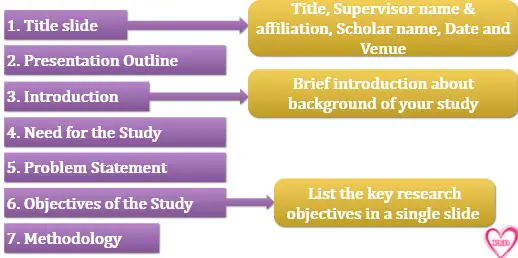
- A title slide which includes Title , Supervisor name & affiliation, Scholar name, Date, and Venue
- Presentation outline – Here you need to list your agenda
- Introduction – Give a brief introduction about the background of your study. It may be of 2 to 3 slides.
- Need for the Study – This is an important slide to convince the examiners and the audience to understand the importance of your study.
- Problem Statement –This is also an important slide that should not be missed out. Problem statement should be of 4 to 5 lines indicating the purpose and intent of the research.
- Objectives of the Study – List the key research objectives in a single slide and number them.
- Methodology – Present the Methodology of your study with a neat flowchart. This may be of 1 to 2 slides.
- Results and Discussion – This is the most important section in the PhD defense presentation.
- Conclusion – Summarize the results and conclude the research outcomes with societal benefits.
- Publication details – Present your publication details
- References – List the relevant references.
- Acknowledgment -Register your gratitude in the acknowledgment slide.
- A Thank You slide
Sample PhD Viva-Voce Presentation Slides
The format of the presentation slides is presented below. This would give you an idea to prepare the slides.
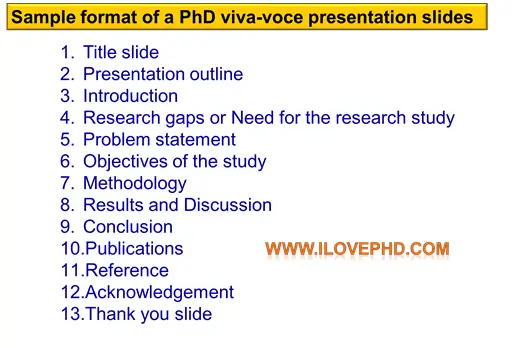
Tips to prepare Ph.D. viva-voce presentation slides
- Give a brief introduction about the background of your study. Always present the information in a bulleted manner rather than lengthy paragraphs. Don’t mess up the slide with too much information. Instead, you can give 4 to 5 key points in a slide.
- Highlight the research gap or the existing limitations and then arrive at the need for the study. You can present the need for the study in the form of concept schematics, which makes the examiner and the audience understand it easily.
- Present your problem statement clearly to establish the focus of your research.
- List the key research objectives in a numbered manner ie., Objective 1, objective 2 like that. You know, it will be easy to follow.
- Present the detailed methodology of your study with neat schematics or flowcharts to visually represent your research approach.
- Discuss the important research findings and data presented in your thesis in a simple and bulleted manner. Don’t keep it as a paragraph in the slide rather you can present the findings with the help of graphs like bar charts, pie charts, etc. Always present your findings with scientific evidence.
- Connect your findings with past relevant literature and emphasize the novelty of your research clearly. Also, highlight the key contributions of your study.
- Use visual aids like schematics, graphs, and tables wherever necessary. Use real images to show your experimental set-up. Ensure the quality of the images are clear and readable.
- Specify the experimental conditions at appropriate places.
- Summarize the results of your research objectives and then conclude the research outcomes with societal benefits. It is very important to connect your research results with the societal benefits.
- Use hyperlinks at appropriate places for presenting huge and important data like Datasets, experimental procedures, and important literature.
- Check the flow and logical connectivity between each slide.
- The last tip is to ensure that the flow of your presentation is in line with your thesis.
Bonus Tips to Prepare PhD viva-voce Presentation Slides
- Maintain uniformity in designing the slide, preferably, use a white background with any dark-colored font.
- Use legible font size and you can use Times New Roman or Arial font style.
- Don’t forget to put the slide number. At the end of your presentation, examiners raise questions by pointing to the slide number. So, including the slide number at the bottom of your slide is very important.
- Limit your presentation slides to 50 to 55 slides. It is expected to finish the presentation in 20 to 30 minutes. So, plan accordingly. Otherwise, you may have to speed up the presentation to finish it.
- Finally, double or triple-check your slides and practice several times before presenting them on your final day.
By following the above-said tips, you can prepare well-organized presentation slides for your PhD defense.
If any of you want the sample format of the presentation slides, you can write us to this email ID [email protected] . We will share the PPT for your reference.
Happy researching!
Also Read: Top 38 Possible PhD Viva Questions
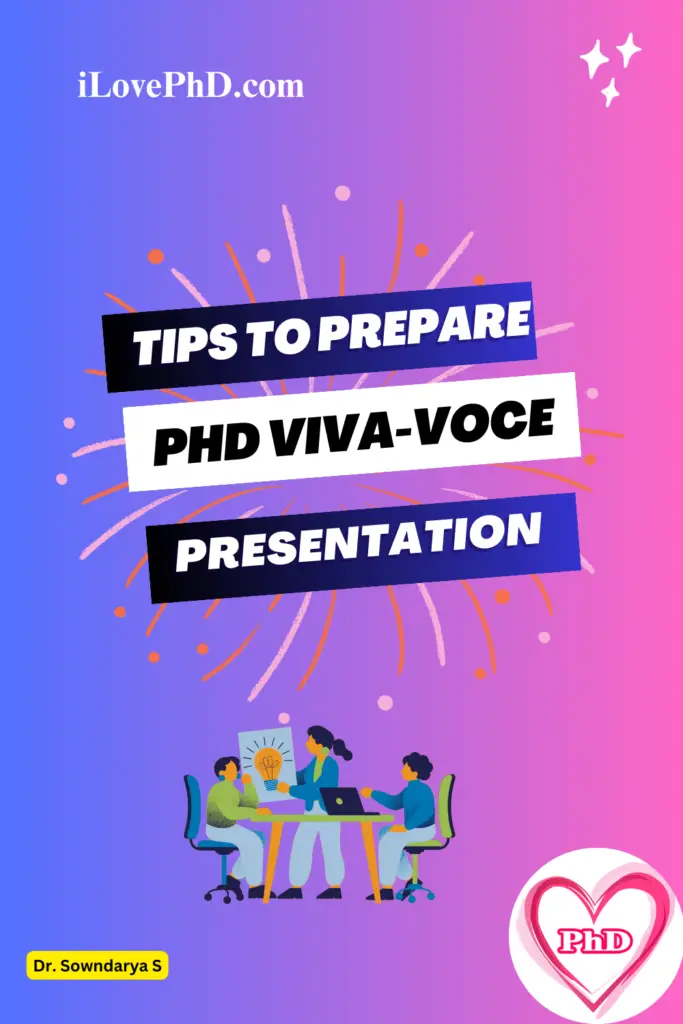
- Academic presentation tips
- best phd viva presentation ppt
- Doctoral defense preparation
- PhD defense slides
- phd viva presentation
- phd viva presentation tips
- PhD viva-voce
- presentation
- Presentation slides
- presentation tips
- Research presentation strategies
- Research Tips
- Thesis defense slides
- Thesis presentation tips
- Tips for PhD viva
- viva preparation
- Viva presentation advice
- viva-voce ppt
Fulbright-Kalam Climate Fellowship: Fostering US-India Collaboration
Fulbright specialist program 2024-25, six effective tips to identify research gap, leave a reply cancel reply, most popular, iitm & birmingham – joint master program, anna’s archive – download research papers for free, 24 best free plagiarism checkers in 2024, how to check scopus indexed journals 2024, types of research variable in research with example, what is hypothesis in research types, examples, & importance, how to write a research paper a complete guide, best for you, what is phd, popular posts, 480 ugc-care list of journals – science – 2024, popular category.
- POSTDOC 317
- Interesting 259
- Journals 234
- Fellowship 128
- Research Methodology 102
- All Scopus Indexed Journals 92

iLovePhD is a research education website to know updated research-related information. It helps researchers to find top journals for publishing research articles and get an easy manual for research tools. The main aim of this website is to help Ph.D. scholars who are working in various domains to get more valuable ideas to carry out their research. Learn the current groundbreaking research activities around the world, love the process of getting a Ph.D.
Contact us: [email protected]
Google News
Copyright © 2024 iLovePhD. All rights reserved
- Artificial intelligence

Top 10 Tips for Viva Success

Listen to one of our scientific editorial team members read this article. Click here to access more audio articles or subscribe.
The viva voce (meaning ‘expressed or conducted by means of speech’ [1]), is the final hurdle in becoming a doctor (of philosophy of course). It is also often the most feared part of completing a PhD, fueled by horror stories of evil examiners and 8-hour long exams.
I drove myself crazy by reading stories of failed vivas on the internet and convinced myself of my impending doom. But after having what I can only describe as a relatively pleasant experience, I want to let people know that viva’s aren’t always a hellish experience, as well as sharing my tips for viva success
I should start off by mentioning that my PhD wasn’t smooth sailing. Lots of things went wrong and I had many months of negative results. Because of this, I convinced myself I was going to fail. However, I ended up rather enjoying my viva and am sure it is in no small part due to some great advice I received. I want to pass this advice on, so here are my top tips for getting through, and maybe even enjoying your viva.
10 Tips for Viva Success
1. calm down and breathe.
Working yourself up is only going to make things worse, by stopping you sleeping, and making you ill. Find a way to relax, be it yoga, running, meditation, or even video games. Just find something to help you stay calm during those long weeks (and even months) leading up to your viva.
2. Do Something Fun
That time between submitting your thesis and the day of your defense is a strange limbo time. It’s easy to get caught up and feel like you should be constantly revising. My advice is don’t! You still need to have fun, or you’ll wear yourself down before the exam. You want to be fresh on the day, so go out and have some fun (maybe with those friends you’ve neglected over the last months/ years).
3. Believe in Yourself
I know it’s easy to have little faith in your own abilities, especially if your PhD has not been all publications and rainbows. But don’t forget – you have spent the last few years reading about, writing about, and doing your project. You are the expert; you know your stuff, remember that.
4. Go in with a Good Attitude
Don’t see the examiners as evil torturers who get kicks out of making you suffer. They want you to pass. However, if you go in thinking that they want you to fail you’ll not only be more scared, you’ll also be more defensive, which isn’t always a good thing.
Instead, try to think of your examiners as people who are really interested in what you have done and who understand all the problems and pitfalls associated with research.
5. Dress for Viva Success
Years of lab work may have your wardrobe looking a little worse for wear and your idea of smart as wearing a T-shirt without any stains or holes, but you should try to make a proper effort to dress smart on your viva day. Firstly, looking good will help your self-esteem, making you feel more confident. Secondly, it shows the examining committee that you are serious about your PhD and the viva, which of course you are, and you want them to know that too.
6. Read Your Thesis
While you have spent the last several years doing your research and the last however long writing it up, you want to make sure it is fresh in your mind. This is especially true if you have had a long gap between submitting your thesis and the exam. You don’t have to (and probably shouldn’t) read it once a day every day until your viva, just make sure you go over it a few times before the exam.
7. Know the Rules
Every institution is different; for some, you have just two examiners, others you also have a convenor. In some institutions, you might need to prepare a talk to present before the viva (this was the case for me, and I found it great preparation for the exam). If you want tips on creating a perfect presentation, check out our Top Tips for Giving Great Talks .
You need to make sure you know what your institution does so that you are well prepared. One important thing to find out is if you are allowed to bring a copy of your thesis into the exam, and if so, whether or not you can annotate it.
8. Make a List of Your Own Corrections
Unless you are perfect or had your thesis professionally proofread, your thesis is likely to contain many mistakes. After reading it over so many times you often see what you think should be written, instead of what actually is written. Before your exam, take another look over your thesis (preferably after some time away from it, so you’re more fresh). Find all the mistakes, write them down and take them into your exam.
I won’t deny this is going to be painful and you’ll be cursing yourself for not catching these mistakes earlier. However, the examiners will be impressed that you did it, and you’ll be less phased by mistakes they highlight. Plus, you could save yourself some time and correct them before the viva, meaning less time spent on corrections afterward.
9. Make Plans to Celebrate Your Viva Success
Or get a friend to organize something if you’re too busy or nervous. I was so scared of failing I didn’t want to organize anything, but when it was all over and I had passed I was so glad to have a night out organized by my friends, especially after so many Saturday nights doing lab work or writing.
10. Try to Enjoy it
I know it may seem absurd, but this is the moment all the blood sweat, and tears has been leading up to. Enjoy your moment in the spotlight. I was surprised to find that I really enjoyed my viva; I was finally able to get it all off my chest. All the big flaws that I was convinced my examiners would point out were barely touched on, and I got to discuss my thoughts and theories with people who were interested and gave me new perspectives and ideas.
So that’s my advice and I hope it helps you if you are preparing to defend your thesis. Have you already been through a viva and survived? What are your top tips for viva success?
- Merriam Webster Dictionary. Viva voce . (Accessed September 22, 2020)
This article was originally published on February 25, 2013. Reviewed and updated on September 24, 2020.
12 Comments
It helped me a lot
Thanks, it helped
Leave a Comment Cancel Reply
You must be logged in to post a comment.
This site uses Akismet to reduce spam. Learn how your comment data is processed .
Forgot your password?
Lost your password? Please enter your email address. You will receive mail with link to set new password.
Back to login
Slip to main content
Lex Academic®
- Blog & Resources
Viva, Soutenance, Disputation: How PhD Students around the World Defend Their Thesis | Lex Academic Blog
22 November 2021

Our recent posts on avoiding major and minor PhD corrections focused primarily on the run-up to and aftermath of defending a thesis in the UK. It occurred to us that for students considering a PhD, or established UK-based academics who have been asked to examine a PhD abroad, it would be useful to know how students in different countries defend their thesis. For the sake of readers unfamiliar with the UK system, let’s begin with a summary. In the UK, students defend their thesis in front of two examiners, at least one of whom must be external to the student’s university, in an examination called a viva voce , or viva. After the exam, the examiners make one of four recommendations: pass with no corrections, pass with minor corrections, pass with major corrections, or fail – resubmission. The majority of students pass with corrections (for more on the difference between minor and major corrections, click the links above), which the student must implement before they can be awarded their degree.
Like those in the UK, students in the US and Australia are usually required to make amendments to their thesis after examination. PhD programmes in the US require students to take and pass oral examinations, or ‘defences’, at regular intervals. Unlike in the UK, where students rarely know their examiners well, as this testimony shows, students in the US system are examined by the same committee throughout their studies. In Australia, the process of submitting and defending a thesis seems to vary between institutions. At the University of Sydney , for instance, students, in consultation with their supervisor, choose between a viva-like oral examination and a thesis-only examination, where the examiners each produce an extensive review of the thesis. The University of Melbourne requires students to present their research at a public completion seminar in the six months before submission.
In many European countries, the concept of PhD corrections doesn’t exist. At the Freie Universität Berlin in Germany, students are awarded a grade ( summa cum laude (distinction), magna cum laude (very good), etc.) for their doctorate, based on the thesis itself and their performance at their viva, or Disputation . Once the thesis has been corrected by the examiners, it is made available for viewing by postdoctoral members of the student’s department before the Disputation . Students in Germany must also publish their thesis in order to receive their award. Unlike a viva in the UK, a French soutenance is a public event. Students defend their thesis in front of a jury , or panel, of examiners. The supervisor, who in the UK may attend a viva but is prohibited from speaking, is usually a member of the panel. The student first gives a presentation about their thesis topic and then responds to questions from each examiner. Unlike in the UK, students in the French system don’t make corrections to the thesis after defending. Instead, the examiners produce a report on the strengths and weaknesses of the thesis, which is a key part of academic job applications, even for senior positions.
In Scandinavian countries, the defence of a PhD thesis is often a ceremonial, highly coded event (this piece by an American academic who was the external examiner for a thesis at a Swedish university describes how the student had to nail – literally – their abstract to a plank in a department common room as a symbol of the public release of the thesis!). At Halmstad University in Sweden, the student defends their thesis publicly and in the presence of an external specialist known as the ‘opponent’. The student may present their thesis, but it’s also possible for the opponent to present the thesis and compare it to existing research in the field. A similar system is used at the University of Helsinki in Finland, where traditionally a strict formal dress code must be adhered to. These codes may sound rather daunting, but in practice few students fail their defence (and the rules on dress are now the subject of debate). The public event is usually cancelled if an examiner deems the work to be below doctoral standard.
Because the process of submitting and defending a thesis varies considerably between countries, students thinking about a PhD, as well as those advising them, would be wise to make this process, as well as other factors like funding and duration, a part of their decision making when applying to universities. Even if you don’t really mind how your thesis is examined, it’s good to know what you’re letting yourself in for.
Be notified each time we post a new blog article
- Share full article

For Mormon Missionaries, Some ‘Big, Big Changes’
The church has loosened its strict rules for those evangelizing. And many members of Gen-Z are loving it.
Andres Gonzalez stands in front of a statue of Jesus Christ in Los Angeles as another missionary, Alec Crawley, films him for a video for social media. Credit... Isadora Kosofsky for The New York Times
Supported by

By Lauren Jackson
Lauren attended church in London, Los Angeles and Paris and spoke with current and former missionaries to report this story.
- May 10, 2024
Andres Gonzalez, 19, stands on the balcony of his Los Angeles apartment, his hands in his suit pockets. It is his first week as a missionary, but today, instead of approaching people on the street, he is shooting a video that he will later post to social media.
After about a dozen takes, he is successful. “Hello! If you would like to learn more about Jesus Christ,” he says to the camera in Spanish, “contact me.”
Mr. Gonzalez is the image of the modern missionary for the Church of Jesus Christ of Latter-day Saints, which has changed many of its practices — from how missionaries preach to how they dress.
The faith, long known for sending tens of thousands of neatly and formally dressed young people across the globe each year to preach door to door, is encouraging new missionaries to spread the gospel on social media and, for some, with acts of community service closer to home.
As a church leader, Dieter F. Uchtdorf, put it, missionaries should feel comfortable sharing their faith in “ normal and natural ways .”
In the last few years, the church has also changed some rules for missionaries themselves — loosening restrictions on dress codes ( women can wear pants ) and how often they can call family members back home ( once a week , not just on Christmas and Mother’s Day).
To outsiders, the adjustments may seem small. But to missionaries who adhere to strict rules while on assignment, the shifts are dramatic.
“We’ve seen a lot of big, big changes,” Jensen Diederich, 23, said. He served his mission in Peru and said it was “monumental” when the church allowed him to call home weekly, instead of just twice a year.
The church believes missionary work is essential for the world’s salvation — that people must be baptized in the faith to get to the highest level of heaven after they die. Missionary work also helps increase the church’s membership, and it deepens many young members’ faith. Many missionaries begin their assignments just after they leave home. Instead of partying on a college campus, they commit themselves to the religion and develop habits that can last a lifetime.
One of those members was Senator Mitt Romney of Utah, who was a missionary in France in the 1960s. He has said the isolation of his mission allowed him to examine his faith without distraction . When asked about the changes, he said, “For young people of my generation, I think the separation from family and friends served us well.”

But he understands times have changed. “With today’s youth in near constant contact with one another, maintaining greater connection during a mission fits their life experience,” he added.
Many young church members say the new rules have made missionary service more attractive and realistic.
Kate Kennington, a 19-year-old with a mission assignment to London, said finding people online and messaging them is a more successful way of approaching potential converts. “It’s how I would want to be contacted,” she said.
“Knocking on doors and approaching people on the street are no longer seen as useful as they once were because of shifts in American culture,” said Matthew Bowman, a professor of religion and history at Claremont Graduate University who holds the chair of Mormon studies. He is also a church member.
For decades, missionaries’ clean-cut suits were signs of prosperity, Mr. Bowman said, and an effective way of appealing to converts. But they now feel “outdated.”
Many of the changes, especially the push to evangelize on social media, were fueled by the pandemic, which shut down in-person church gatherings and forced Latter-day Saints and Jehovah’s Witnesses to find alternatives to door-to-door preaching.
The missionaries use their phones to film videos of themselves promoting the church or sharing messages of faith. In one video , a missionary raps about his faith. In another , two missionaries throw a football and a Frisbee through an obstacle course in a church gym — an object lesson meant to visualize how Jesus Christ can help people overcome challenges.
So far, the changes appear to be working: In the last three years, as pandemic restrictions lifted and young members responded to an appeal from the church’s top leader for them to serve, the number of full-time proselytizing missionaries has risen by around 25 percent , according to church data. At the end of last year, the church had about 72,000 full-time missionaries serving around the world.
The church has just under 17.3 million members globally but has seen growth slow. From 1988 to 1989, during a surge in growth when the church expanded into West Africa , the church grew by about 9 percent . Last year, the church grew by about 1.5 percent .
A tradition of travel
Missionary work is a rite of passage for Latter-day Saints — and has been since the church’s founding in 1830.
The church’s missionaries have traveled the world, growing their faith from a fledgling start-up in upstate New York to a global religion that brings in billions of dollars in revenue .
Church leaders say it is men’s responsibility to become missionaries for two years starting at age 18. Missionary work is optional for women, who serve for 18 months. The church has historically encouraged women to focus on marriage and motherhood. But since 2012, when the church lowered the age women could become missionaries to 19 from 21, more women have been going .
Missionaries leave their families and friends, learn new languages and spend the first years of their adulthood spreading the gospel of Jesus Christ.
While on a mission, they cannot date and must follow the religion’s ban on premarital sex, drinking, smoking, coffee and caffeinated tea. Communication with friends and family back home is restricted. They commit to stay focused on their work, and their proximity to their missionary partner creates a sense of accountability that keeps most from breaking the rules.
Until recently, the experience of young missionaries was similar to that of their parents. They first attended a missionary training center — a religious boot camp of sorts — before then traveling to their missions.
Most missionaries now start their training online at home , where the transition is less jarring. They can adapt to a mission schedule with their family’s support. Being home is also an opportunity for new missionaries to evangelize in their community.
“I’ve had friends who aren’t members of the church,” Tanner Bird, a 19-year-old missionary in Brazil who did part of his training at home in Houston. “And I just get super, super excited and talk to them about the gospel.”
Once deployed, men in some areas are allowed to wear blue shirts and go without ties , while women can wear wrinkle-resistant dress pants in “conservative colors.” Most missionaries now have smartphones and call their families weekly.
Some traditions remain: Young missionaries still do not get to pick their destinations. Many teenagers throw parties to open their assignments, reading their “call letter” aloud for the first time in front of family and friends. Others film elaborate announcement videos — including on ice skates . Some serve close to home (there are 10 missions in Utah). Others go as far as Tahiti or Tokyo.
Mr. Gonzalez, the missionary in Los Angeles, said he first imagined going on a mission when he was a child in Venezuela. His parents, who converted to the faith, often had young missionaries over for meals. After the church helped the family settle in Utah, he said serving as a missionary was part of his “American dream.”
Every morning, he wakes up at 6:30 a.m., the set time for many missionaries, with his “companion,” an assigned missionary partner. They are mandated to “never be alone,” with few exceptions, and each day follow a missionary schedule .
On Facebook, they contact people they have met, including those they have approached on the street in downtown Los Angeles. They also search groups for people who may be open to their message and post videos to generate interest in their faith. They keep track of potential converts’ progress, including lessons they teach. Every Monday, Mr. Gonzalez calls his parents.
Calls are also an opportunity for him to receive support. “It’s a little bit hard,” Mr. Gonzalez said of his mission work, describing people in downtown Los Angeles as “busy.” Still, he remains hopeful: “Some of them, they really are ready. They make time, even just like five minutes.”
The missionary experience is not for everyone. Some people feel isolated, find it difficult to adapt to a location, or struggle with the rules or the pressure to keep their commitment. Some people do leave early; the church does not comment on those who do.
Alex McAlpin, a 23-year-old who went on a mission to Denver, almost did not put in a missionary application. Before her mission, she attended Pepperdine University, where she wrestled with some aspects of church doctrine and history.
Then the church made its dress code change, allowing women to wear pants in 2018.
“That was the first day of my life that I thought maybe I would go” on a mission, Ms. McAlpin said. She saw the new dress code and the church’s other mission changes as a sign the church was evolving and listening to its younger members, many of whom hope their church will modernize in larger ways. “I wanted to be a part of the change.”
Lauren Jackson is an associate editor and writer for The Morning , The Times’s flagship daily newsletter. More about Lauren Jackson
Inside the World of Gen Z
The generation of people born between 1997 and 2012 is changing fashion, culture, politics, the workplace and more..
A younger generation of crossword constructors is using an old form to reflect their identities, language and world. Here’s how Gen Z made the puzzle their own .
For many Gen-Zers without much disposable income, Facebook isn’t a place to socialize online — it’s where they can get deals on items they wouldn’t normally be able to afford.
Dating apps are struggling to live up to investors’ expectations . Blame the members of Generation Z, who are often not willing to shell out for paid subscriptions.
Young people tend to lean more liberal on issues pertaining to relationship norms. But when it comes to dating, the idea that men should pay in heterosexual courtships still prevails among Gen Z-ers .
We asked Gen Z-ers to tell us about their living situations and the challenges of keeping a roof over their heads. Here’s what they said .
What is it like to be part of the group that has been called the most diverse generation in U.S. history? Here is what 900 Gen Z-ers had to say .
Advertisement

IMAGES
VIDEO
COMMENTS
I am thinking about causal suit plus leather shoes but without necktie. Just wondering what's normal dress code for male PhD candidate in VIVA, try to show the respect for the examinears.:-) I've been thinking about this too, as mine's this week. Not about men's clothes as I'm not one, but I was thinking that I should probably dress as if it's ...
The viva voce, shortened to viva, is an oral examination where you are expected to 'defend' your thesis, and the quality of your research will be assessed. The viva will take place usually within 3 months of submitting your thesis; it is a required examination in order to achieve a postgraduate research degree.
Practical wins out for me every time. Dress for confidence. The viva does not have to be a scary event, but understandably people can feel a little stress. The clothes you wear can help build you up, so choose things that make you feel great. Also check out this great TED Talk by Amy Cuddy on confidence - and practice your power pose!
A viva voce, more commonly referred to as 'viva', is an oral examination conducted at the end of your PhD and is essentially the final hurdle on the path to a doctorate. It is the period in which a student's knowledge and work are evaluated by independent examiners. In order to assess the student and their work around their research ...
You'll need sustained (rather than sugar high) energy for something that may stretch to a number of hours. My recipe for a Viva Voce meal would involve bananas, yoghurt, nuts and cereal, and (not instant) coffee. Take in some water too. Typically this is provided, but make the provision just in case. Fifthly: the break.
12) Don't talk like a politician. There's a danger of trying to over-prepare. Don't learn answers off by heart - it removes the spontaneity and is obvious to examiners. If a student has ...
PhD Defence in Finland: The Dress Code. In addition to Finland's PhD Sword and Hat customs, Finnish university PhD defences (i.e. the viva) are steeped in tradition when it comes to the academic dress code. Most commonly, male doctoral candidates wear a tailcoat and black waistcoat with black socks and shoes, or a dark suit or military uniform.
The viva voce is the final assessment for a PhD. It is an oral examination where the student defends their research to two academic examiners. This involves answering questions about your work, typically related to the literature, methodology, your findings and the significance of your conclusions. In some countries (like the USA) the viva is ...
The viva must not be arranged before the examiners are formally appointed by UCL. It may take place at UCL, or remotely. Your examiners should have your thesis at least six working weeks before the viva and you will receive an email once the thesis has been sent to the examiners. At this point, you will be able to record the viva via the ...
The examiners are asked to send their decision and joint report form on the examination to the Doctoral School within two weeks of the viva. Once this paperwork has been received, the Doctoral School will inform you of the outcome. In some cases, the examiners may be in a position to indicate to you the outcome at the end of the viva (but this ...
1). Make your own learning space. "It's important on the lead up to the viva voce to have a space that's designated for your preparations. This could be at your university, in a coffee shop or at home. "For instance, I took over my dining room table for a good two months. I had all of my resources there - my books, my thesis and lots of post-it ...
There is no set duration, but a viva will normally last between 90 minutes and three hours. You may be required to do a presentation - please check with your Department whether this is the case. If you are required to give a presentation, you should be informed at least two weeks in advance of the viva. The viva cannot be recorded.
The viva voce examination (if required, as will be the case for doctoral degrees) will normally take place at the University. However, the Head of School may give permission in appropriate circumstances for the viva voce examination to be held in another location or through online means provided agreement of the Examiners and the student is obtained and the proposed location/format is one that ...
viva voce. examination. • There is no dress code as such for your . viva voce, but you should note this is a formal examination. • The examiners may decide that the thesis is unsatisfactory and that no useful purpose would be served by holding the . viva voce. at this time. In the event of a referral being agreed, the
Preparation of neat PhD viva-voce presentation slides and perfectly presenting them in the given time is very important for a PhD viva-voce examination as it going to give a good impression on both the research scholar and supervisor or mentor by the examiners or moderators.. Before designing the presentation slides, the scholar has to decide what to include and what not to include in the slides.
OP by all means be comfortable but you want to dress to show you are taking the event seriously. A smart dress or formal blouse and trousers with smart shoes would be what I would go for. You can have a look on Twitter for ideas - I often see photos from UK viva candidates, usually taken after the viva either a cake or bottle of champagne.
The viva voce (meaning 'expressed or conducted by means of speech' [1]), is the final hurdle in becoming a doctor (of philosophy of course).It is also often the most feared part of completing a PhD, fueled by horror stories of evil examiners and 8-hour long exams. I drove myself crazy by reading stories of failed vivas on the internet and convinced myself of my impending doom.
What's the dress code for PhD VIVA. Page 2. What's the dress code for PhD VIVA. Back to threads Reply. D. Damo 4 posts 15 years ago ===== Date Modified 19 May 2009 17:25:01 ===== Hi Jiou0962, I wore "business casual" - smart trousers, leather shoes, business shirt and a smart jumper (it was winter).
Whilst you *could* turn up in a suit and the external and internal are casually dressed... I think that will be less worrying than if you turn up in jeans and are faced with 2 people smartly dressed. Wearing a suit in some cases suggests you take your viva seriously and want to make a good impression. Good luck and although it might not have ...
Students in Germany must also publish their thesis in order to receive their award. Unlike a viva in the UK, a French soutenance is a public event. Students defend their thesis in front of a jury, or panel, of examiners. The supervisor, who in the UK may attend a viva but is prohibited from speaking, is usually a member of the panel.
At Oxford vivas (defences) count as examinations, and full academic dress is required, meaning a dark suit, white shirt or blouse, white bow tie or black ribbon, mortarboard and gown. This is, of course, made very clear to candidates beforehand, though. - dbmag9. Dec 18, 2014 at 22:15.
Then the church made its dress code change, allowing women to wear pants in 2018. "That was the first day of my life that I thought maybe I would go" on a mission, Ms. McAlpin said.
I was originally planning to be smarter, but I had to use my wheelchair on the day, and comfort and practicality was more important. So long as you don't turn up too informally dressed - i.e. jeans and a t-shirt - it should be fine. They are examining your PhD/thesis, not how you are dressed. 12 years ago. 1964 posts.